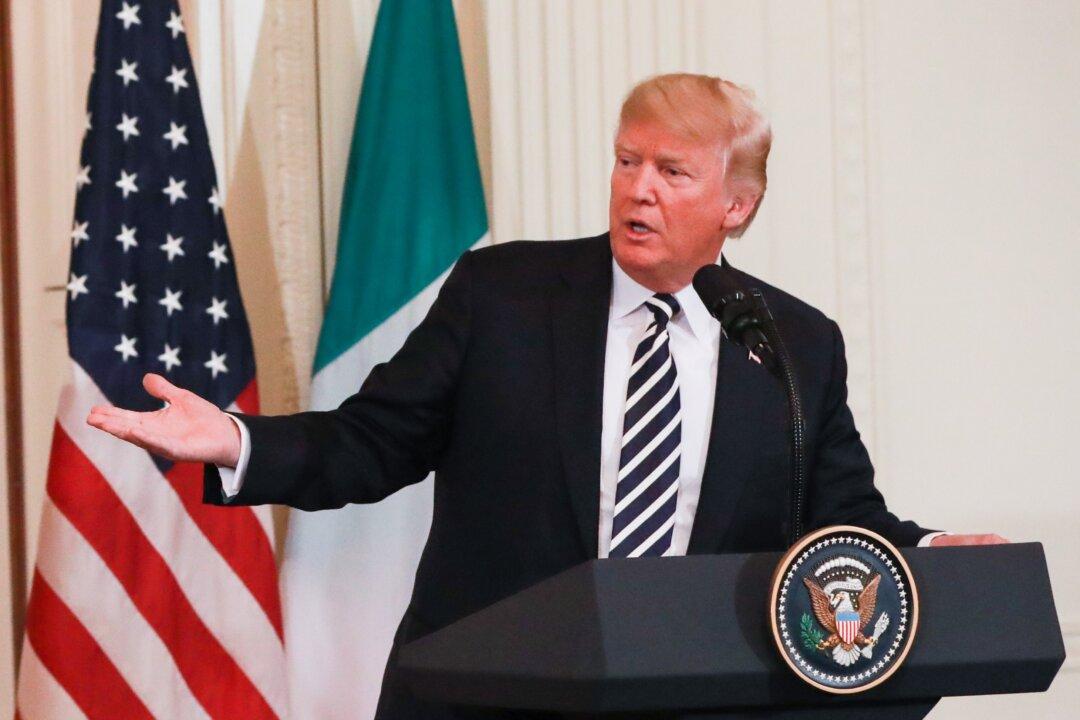President Donald Trump said he’s willing to meet with the government of Iran without any preconditions and at its convenience.

President Donald Trump holds a joint press conference in the East Room of the White House in Washington on July 30, 2018. Samira Bouaou/The Epoch Times

Petr Svab
reporter
|Updated:



